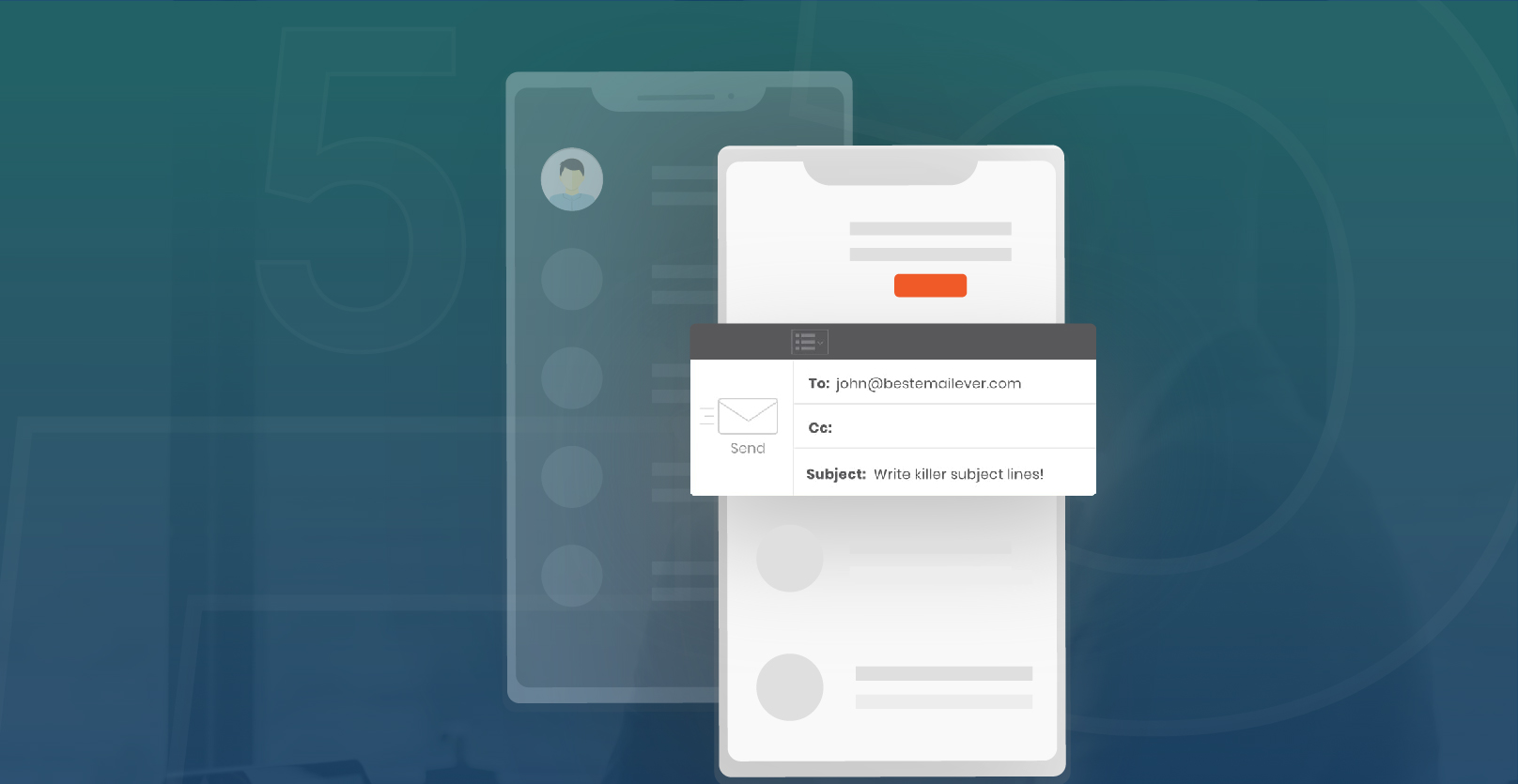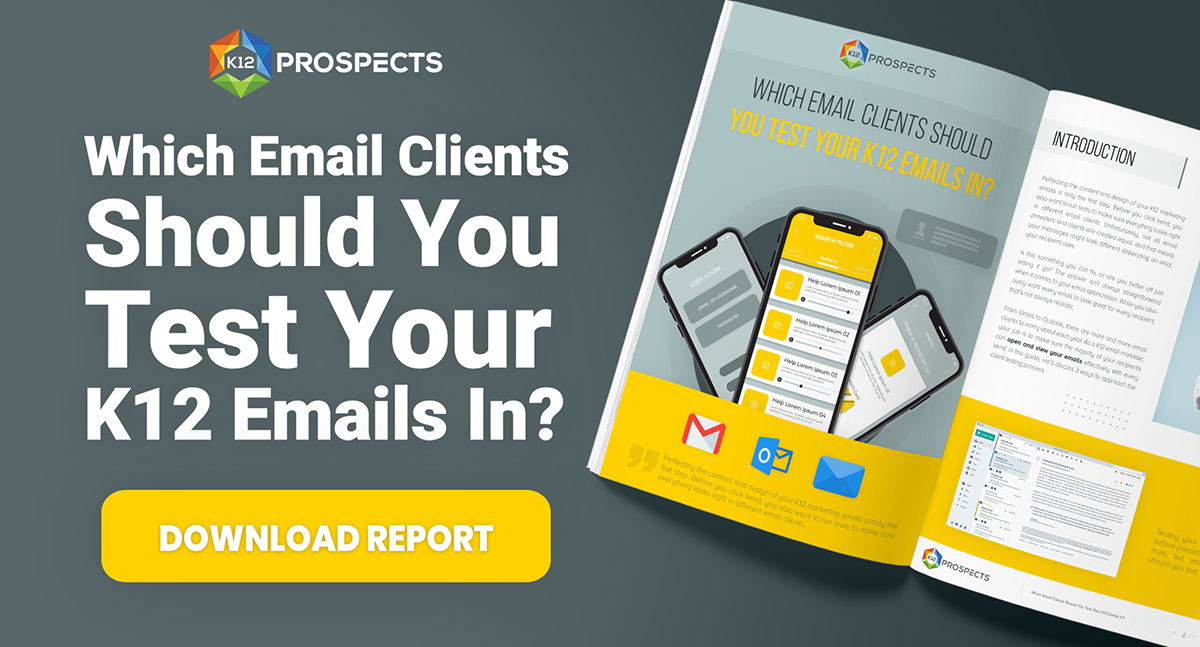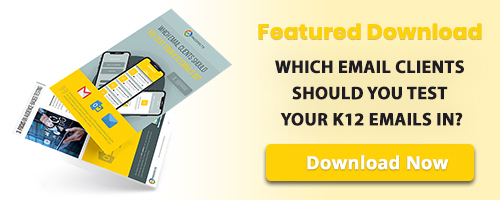5 Best Practices for Writing K12 Email Subject Lines

When you send an email, you often focus all of your time and effort on the content. While this makes sense since the content is the meat and potatoes of your marketing, after all, it isn’t what your users see first. When marketing to K12 professionals, you only have a few brief seconds to make an impression. With hundreds of daily emails to sift through, you need a winning K12 email subject line to stand out in a crowded inbox.
We can all relate to seeing an eye-catching, interesting subject line in our inbox. This makes the difference between skipping over a message and diving right in. Within the K12 space, you need to use every bit of your inbox real estate to capture the attention of your audience. In this guide, we’ll share the best practices for writing K12 email subject lines.
1. Personalize the Subject
First, make sure you’re personalizing the subject line. Just as you should customize the ‘from’ field with each email, make sure you’re not just sending a generic, one-size-fits-all subject. Consider unique ways to personalize your subject line by segmenting your email list. For example, you might personalize your subject by:
- Job position (administrator, teacher, etc.)
- School Location
- District
- School
While this takes a bit more effort upfront, it makes a huge difference when it comes to clicks. A reported 64% of users make a decision to open emails based on subject lines alone. Though simple, don’t underestimate the power of personalization.
2. Use Characters Wisely
Next, keep your email subject lines short and to the point. As we mentioned above, K12 professionals don’t have all day to go through their inboxes. While these professionals do check their email several times a day, they likely will scroll right past a lengthy, complicated subject line.
Because more professionals are checking their inboxes on a mobile device, it’s never been more important to pay close attention to character limits. Most email clients only show 43 characters in mobile view. In fact, subject lines with only 4 words receive the highest open rates. While you might want to put as much info in your subjects as possible, it’s best to keep it short and sweet.
3. Don’t Overlook the Pre-Header
Speaking of using all available real estate, don’t forget the email pre-header. This is also called the preview text. It refers to the short blurb that appears after the email subject before clicking open an email. The preview text typically covers more characters than the subject line, so this is an opportunity to write something enticing.
Add an explanation or a CTA to open your email in this pre-heading space. While some companies make the mistake of repeating the subject again, use this space to lure in your K12 audience, tempting them to click on your email.
4. Include Numbers
Additionally, consider including numbers in your K12 marketing email subject lines. While using words like “many, more, top, several” are easy to throw into your subject line, these aren’t very specific or eye-catching. Instead, use numbers to appeal to the local side of the human brain.
As logical creatures, we think in numbers. Using a digit like 5, for example, is more enticing than saying “many.” See this in practice with these eye-catching, numerical ideas below:
- 10 ways to prepare for this school year
- 5 action steps for every virtual teacher
- 7 classroom spots teachers forget to clean
5. Share an Offer for Your K12 Audience
While most K12 school offers are hidden within the body of your email, why bury the lead? If you’re offering something of value, this should be at the foundation of your K12 marketing strategy. Your recipients want to know what’s in it for them. Make it obvious from the first time they see your name in their inbox.
Offer a discount, freebie, sale’s story, or free download. While you should be mindful of words that could have your email labeled as spam, be honest about what you’re offering. For example, if you’re selling a classroom application, you might offer a special discount for charter schools. By making a personal discount, you’re more likely to capture the attention of teachers, professionals, and administrators quickly.
You don’t want your users to guess what you have in store. Make it clear from the start. Consider the value that’s in it for your audience and always lead with that first. Being mindful of your offer and value is the best way to stand out in a competitive industry.
6. Add Power Words for K12 Education
In the K12 education space, power words are a persuasive way to trigger a psychological or emotional response. While many email marketers use blank subject lines, these are really passive and easy to overlook. Instead, use power words that target your K12 audience.
When an emotional or psychological response is triggered in your recipient, they’re more likely to click to open the message. Power words can serve any purpose, such as appealing to curiosity, vanity, or emotions. Here are some power words related to K12 marketing:
- Built trust: Best, verified, guaranteed, professional, scientifically proven
- Appeal to vanity: Interesting, clever, genius, elite
- Create FOMO: Beware, crisis, tank, targeted, jeopardy
- Curiosity: Be the first, eye-opening, extraordinary, unique, priceless
As you can see, these words above all have a level of interest and intrigue. Compared to bland alternatives, they’re sure to have your K12 audience clicking at higher rates than before.
Create Winning K12 Subject Lines
Ultimately, there are many steps to take to improve your K12 email subject lines. If you’re struggling with low open rates, it’s time to examine your subject lines. This is one of the most important email marketing metrics, and it’s easy to optimize using the steps above.
While you should always have a high-quality, reliable email list, this is just the first part of the process. Without a winning email marketing strategy, your emails run the risk of going unnoticed.



